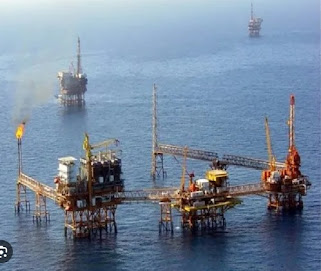The oil & gas industry is undergoing significant transformation driven by technological advancements, evolving market dynamics, and changing workforce demographics. As a result, recruitment in the sector is experiencing a shift, with new trends emerging to address the evolving needs of employers and job seekers alike. In this article, we'll explore the latest trends in oil & gas recruitment agency and provide insights from industry experts on the key factors shaping talent acquisition strategies in the sector.
Digital Transformation:
Digital transformation is revolutionizing the oil & gas industry, leading to increased demand for professionals with expertise in areas such as data analytics, artificial intelligence, and cybersecurity. Industry experts emphasize the importance of recruiting talent with digital skills to drive innovation, optimize operations, and enhance safety and efficiency across the value chain. Recruitment agencies are playing a crucial role in sourcing and identifying candidates with the requisite digital capabilities to meet the industry's evolving needs.
Energy Transition and Renewable Technologies:
The energy transition towards cleaner and sustainable sources of energy is reshaping the talent landscape in the oil & gas sector. Industry experts highlight the growing demand for professionals with expertise in renewable energy technologies, such as solar, wind, and hydrogen, as well as energy storage and grid integration. Recruitment agencies are assisting oil & gas companies in diversifying their talent pools and acquiring the skills needed to navigate the transition to a low-carbon future.
Skills Shortages and Talent Pipelining:
Despite advancements in technology and automation, the oil & gas industry continues to face challenges related to skills shortages, particularly in specialized roles such as engineering, geosciences, and offshore operations. Industry experts stress the importance of talent pipelining and proactive recruitment strategies to address current and future skills gaps. Recruitment agencies are partnering with employers to develop talent pipelines, nurture relationships with passive candidates, and implement workforce planning initiatives to ensure a steady supply of skilled professionals.
Diversity, Equity, and Inclusion (DEI):
Diversity, equity, and inclusion have become key priorities for oil & gas companies seeking to foster a more inclusive workplace culture and attract diverse talent. Industry experts emphasize the importance of implementing DEI initiatives in recruitment practices to promote equal opportunities, eliminate bias, and create a more representative workforce. Recruitment agencies are supporting diversity and inclusion efforts by sourcing candidates from underrepresented groups, implementing inclusive hiring practices, and providing training and support to clients on DEI best practices.
Global Workforce Mobility:
The oil & gas industry is inherently global, with projects and operations spanning multiple countries and regions. Industry experts highlight the importance of global workforce mobility in meeting the sector's talent needs, particularly in remote and challenging environments. Recruitment agencies play a critical role in facilitating international mobility by assisting with visa and immigration processes, providing relocation support, and sourcing candidates with experience working in diverse cultural settings.
Conclusion:
Trends in oil & gas recruitment are evolving rapidly in response to the industry's changing landscape and workforce dynamics. From digital transformation and energy transition to skills shortages and diversity initiatives, recruitment agencies are at the forefront of helping employers navigate these trends and secure top talent. By staying informed about the latest industry trends and leveraging the expertise of recruitment experts, oil & gas companies can build robust talent acquisition strategies to meet their current and future workforce needs.

Comments
Post a Comment